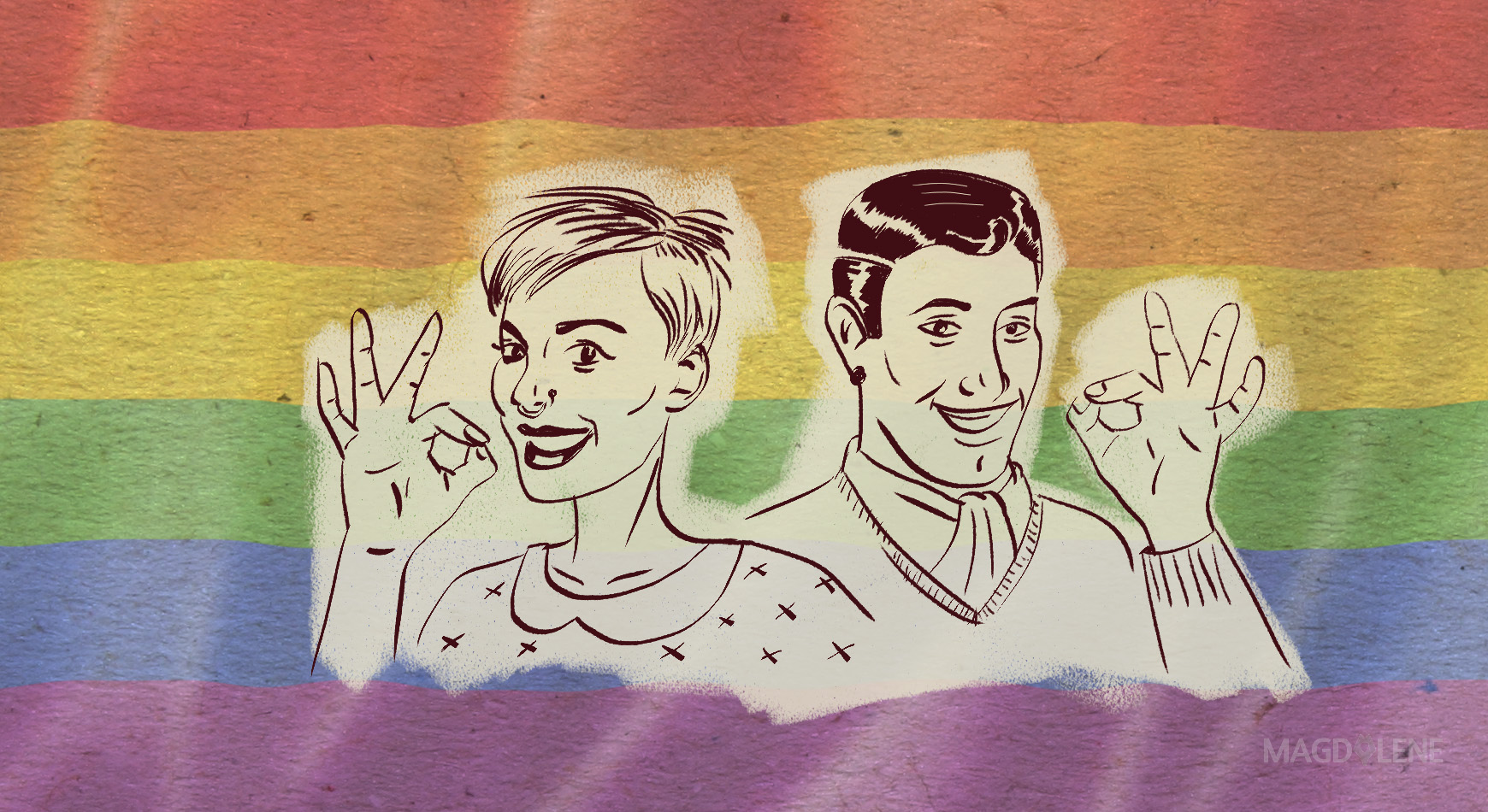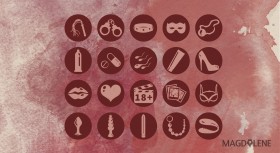Sometimes, public health education becomes wearisome for the health professional. Because, as any person working on behavioral and attitude change will tell you, the information has to be repeated in novel ways until it becomes common knowledge.
As a mental health professional, I'd always thought that information that has been in the scientific mainstream for 40 years and relates to something as common as homosexuality would be common sense by now.
I refer of course to the scientific consensus that being lesbian or gay or bisexual is a normal human variation. For the sake of completion, I shall say that there is an emerging consensus that being transgender is also a normal human variation. But I will not discuss issues of transgender people here, having written on this already. Instead, I shall focus on lesbian, gay and bisexual people.
So this is the mental health information that people really need to understand: being gay is normal.
Some people are heterosexual and some are gay or lesbian or bisexual. Some people are short and some are tall. Some people are plump and some thin. In other words human beings vary in many ways both physically and psychologically. One of the ways they vary is to whom they are sexually attracted.
Therefore there is no such thing as "too gay."
Paint their hands back
I refer, of course, to the billboards of a local fashion company that show different loving duos: a grandmother and her grandson, a heterosexual couple, a lesbian couple and a gay couple. It seems someone (initially announced as members of the Ads Standards Council but later denied by them) thought that a billboard of two men, fully clothed and very subtly holding hands, was "too gay." The billboards had to be revised, defaced actually, because the hands were very badly painted over in black.
Happily, some brilliant folk have started a "paint their hands back" campaign in order to counteract this bigotry. And bigotry is the proper term here. Bigotry, which in my opinion is the psychologically deviant attitude. After all, some studies show that intolerance and being hostile towards persons who are different, is often associated with unhappiness, isolation and anti-social behavior.
But let me get the science out of the way.
Most psychologists and psychiatrists, even those in the Philippines, are guided by a manual published by the American Psychiatric Association called the Diagnostic and Statistical Manual or DSM. The DSM is a very thick book that lists all the possible types of mental illnesses and how to diagnose them. It provides clear-cut criteria that the trained professional must apply so that he or she can make a decision whether someone is mentally ill and what type of illness it is. The categories and criteria in the DSM are based on rigorous research data. In fact, in order to remain scientific and valid, the DSM is regularly updated and is now in its fifth version. Thus the current one is the DSM V.
Gay is normal
In 1973, for the third major revision of the DSM, homosexuality was "delisted" as a mental illness based on scientific studies.
In other words, mental health professionals studying sexual orientation found that being homosexual did not make a person deviant or abnormal or criminal.
In the same way that being heterosexual is not a guarantee that you will be normal or abnormal, being homosexual is not a guarantee that you will be abnormal or normal.
Here I ask the reader to think about the people they have known or heard of who are psychotic, or criminals, or senators charged with plunder, or awful jerks. You will come to realize that the majority of them are heterosexuals. That is because most people are heterosexuals.
So, there will also be gay or lesbian or bisexual people who are psychotic or criminal or awful jerks but they will be a minority. Good people are also to be found among heterosexuals, gay, lesbian, bisexual and transgender groups.
The studies did show then that the mental health problems of homosexuals were related to the discrimination, stigmatization, bullying, intolerance, hatred and violence that they experienced from people. People like the ones who said that the billboard was "too gay."
These studies have held up over the last 40 years. People who dislike gay people, or who think they are sinful, and who are hoping the science was wrong, will have a lifetime of frustration coming their way. The studies have not only held up, newer research continues to prove the proposition that homosexuality is a normal human variation.
Intolerance is bad mental health
I am appealing to those who believe that science is not incompatible with morality.
I believe the moral person must take the time to be scientifically literate, to give due recognition to what the experts are saying and to see whether what science says allows for a more compassionate and loving attitude towards others.
To accept the findings of years of scientific research on the issue of sexual orientation is a moral position because it allows people to accept, and love, be more compassionate, and not hurt good people. So, for the sake of gay people who may also be your son, your daughter, your aunt, your mother, your father, your brother, your sister, your teacher, your neighbor, your cousin, or you yourself, let's all put an end to this nonsense about their abnormality.
Because, it is not being gay that puts a person in danger of becoming a criminal or deviant. It is being an intolerant person that is more dangerous to your mental well being. Psychological studies are showing that it is intolerant people who are more likely to be unhappy, socially isolated or engage in criminal acts. In fact, one merely has to look around to realize that some of the most anti-gay people end up being exposed as gay sexual predators.
So even if you are heterosexual, with the truly mistaken belief that no one you love and respect is gay, it is better for you psychologically to change your attitudes towards gay people towards acceptance.
You may find that learning to accept differences and being open to new attitudes and ideas lessen your own fear of the unfamiliar. This will give you more courage and peace of mind.
Sylvia Estrada Claudio is a doctor of medicine who also holds a PhD in Psychology. She is Professor of the Department of Women and Development Studies, College of Social Work and Community Development, University of the Philippines, and the co-founder and Chair of the Board of Likhaan Center for Women's Health.
*This story was first published in Rappler.com, a Manila-based social news network where stories inspire community engagement and digitally fuelled actions for social change.








Comments